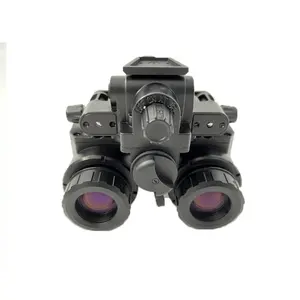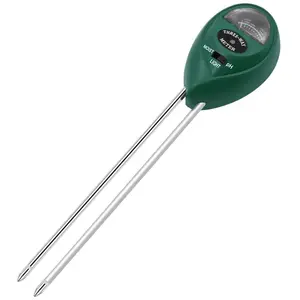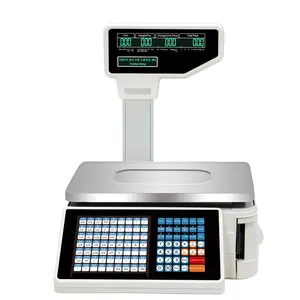Popular in your industry














































About pressure gauge for natural gas
A pressure gauge for natural gas is an indispensable tool for monitoring and managing the pressure levels in natural gas pipelines and systems. These gauges are critical for the safe and efficient operation of equipment that relies on natural gas, as they help to prevent pressure-related accidents and ensure consistent performance.
Types and Features of Pressure Gauges for Natural Gas
When exploring the types of pressure gauges for natural gas, we encounter a variety of models each with unique characteristics designed to meet specific operational demands. Analog gauges, with their simple, direct needle readouts, offer ease of use and a traditional approach to pressure monitoring. Digital gauges, however, provide a modern twist with features such as backlit displays, programmable alarms, and the ability to interface with control systems for automated monitoring. Some gauges are specifically engineered to withstand extreme temperatures and pressures, making them suitable for rigorous industrial applications. Features like shock resistance, ingress protection ratings, and explosion-proof certifications are also available, ensuring that each gauge can be matched to the safety requirements of its intended environment.
Structure and Materials of Natural Gas Pressure Gauges
The pressure gauge for natural gas is meticulously engineered, comprising a bourdon tube, a geared movement assembly, and a pointer that translates pressure into a readable dial indication. The bourdon tube, the heart of the gauge, reacts to internal pressure changes by flexing—a mechanical action that is converted into a precise dial movement. The movement assembly is often encased in a protective atmosphere or filled with a dampening fluid to protect against vibration and pulsation, ensuring stable readings. The dial itself is usually crafted from materials that resist fading and wear, while the window is made of shatter-resistant glass or plastic to withstand harsh conditions.
Materials and Their Properties
The selection of materials for a pressure gauge for natural gas is a critical decision that impacts its longevity and reliability. Brass fittings are commonly used for their excellent corrosion resistance and ductility, which are essential in high-pressure gas applications. Stainless steel, used for the case and bourdon tube, is chosen for its strength and resistance to a wide range of chemicals and temperatures. These materials are not only chosen for their physical properties but also for their compatibility with natural gas, ensuring that they do not degrade or react adversely when exposed to it over long periods.
Applications and Business Usages
The pressure gauge for natural gas finds its place in a multitude of settings. In the energy sector, these gauges are vital for monitoring the gas pressures in distribution networks, ensuring that homes and businesses receive a consistent and safe gas supply. In manufacturing, they are used to control the gas pressure in burners, ovens, and furnaces, directly affecting the efficiency and quality of production. The food industry utilizes these gauges in food packaging and preservation processes, where precise pressure control is necessary to maintain freshness and comply with safety standards. Each application not only underscores the versatility of these gauges but also their role in enhancing operational efficiency and safety.
Functions and Advantages
The pressure gauge for natural gas serves the fundamental purpose of measuring and displaying the pressure within a gas system to ensure it operates within safe parameters. The advantages of using a reliable gauge are far-reaching, including the prevention of gas leaks, which can lead to catastrophic failures, and the ability to maintain optimal pressure levels, which can extend the life of the equipment and reduce the need for repairs. For businesses, this translates to a more reliable operation, which can improve overall profitability and safety records.
Features and Unique Selling Points
The unique features of a pressure gauge for natural gas often include a variety of dial sizes for easy reading from different distances, options for liquid filling to dampen needle vibration for clearer readings, and the presence of safety blow-out discs that protect users in the event of a bourdon tube failure. The unique selling points of these gauges may include their certification for specific industry standards, their long-term stability and reliability, and the availability of custom dial layouts to suit specific customer requirements. These aspects are particularly important for businesses that rely on precision and need assurance that their monitoring equipment is up to the task.
Benefits and Positive Outcomes
Employing a high-quality pressure gauge for natural gas brings about numerous benefits. It ensures the integrity of gas systems, aids in energy conservation by detecting leaks, and contributes to environmental protection by preventing gas emissions. The positive outcomes of using such gauges include improved system performance, compliance with safety regulations, and ultimately, the protection of assets and human lives. For businesses, the use of these gauges can also lead to improved reputations as responsible and safety-conscious operators.
How to Use and Maintain
Proper usage of a pressure gauge for natural gas involves regular monitoring to ensure accurate readings. Selection should be based on the specific needs of the application, considering factors such as pressure range, environmental conditions, and required certifications. Maintenance should include routine checks and calibration to ensure ongoing accuracy. Installation must adhere to industry standards and is best performed by professionals to guarantee the gauge is correctly fitted and calibrated for the gas system it will monitor.
How does a pressure gauge for natural gas enhance system safety?
A pressure gauge for natural gas enhances system safety by providing real-time monitoring, which is critical in detecting pressure deviations that could lead to leaks or explosions. By alerting operators to these changes, immediate corrective actions can be taken to mitigate risks, thereby safeguarding both the facility and personnel.
What are the considerations for long-term usage of natural gas pressure gauges?
For long-term usage, it is important to consider the durability of the pressure gauge for natural gas, its resistance to environmental factors, and the frequency of maintenance required. Choosing a gauge with robust construction and materials suitable for the operating environment will ensure longevity and reliability over time.
How can businesses ensure the accuracy of their natural gas pressure gauges?
Businesses can ensure the accuracy of their pressure gauges for natural gas by implementing regular calibration checks, using gauges with high accuracy ratings, and selecting gauges from reputable suppliers. It is also crucial to use gauges appropriate for the specific range of pressures in their systems to maintain precise measurements.

























